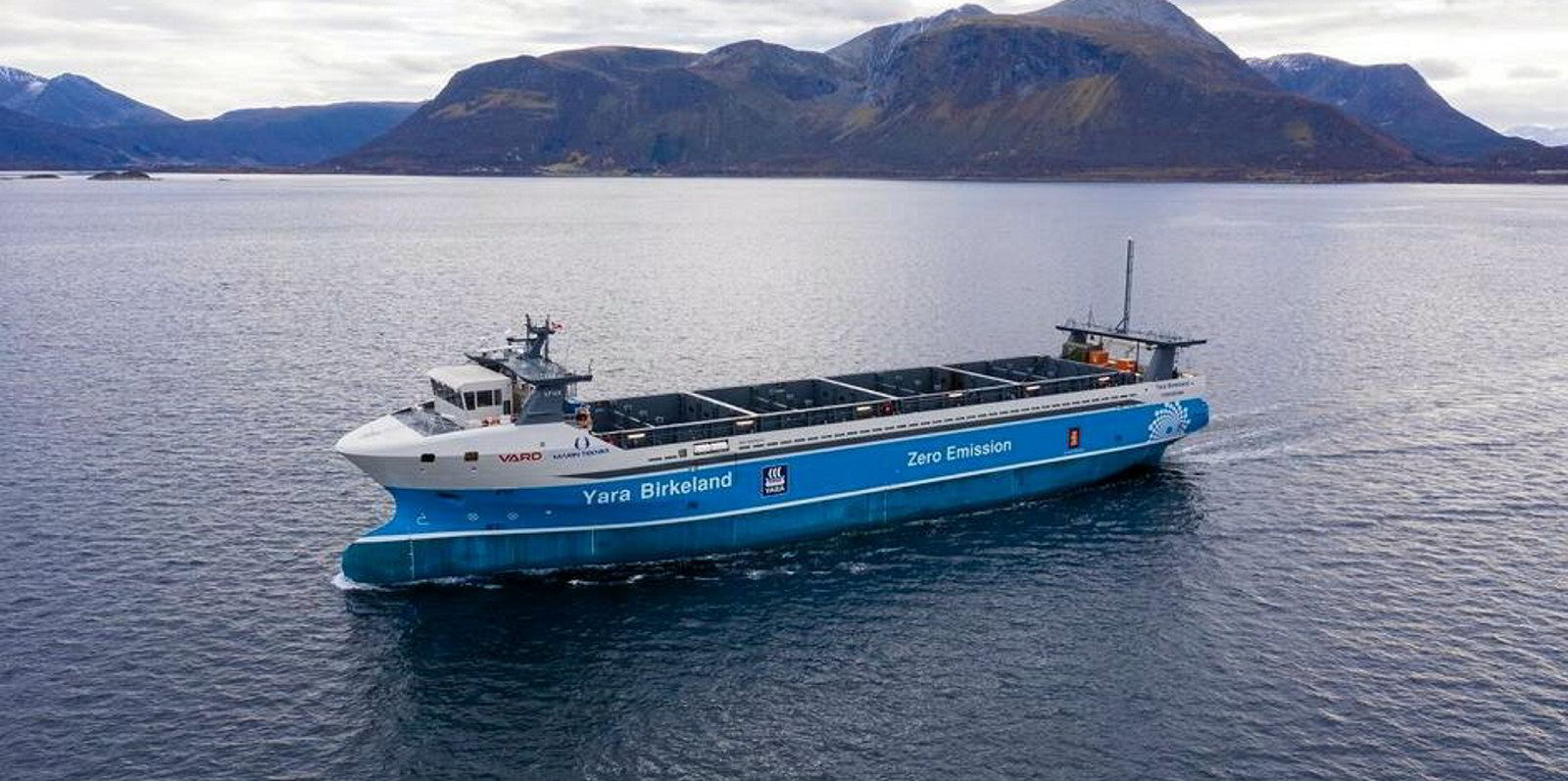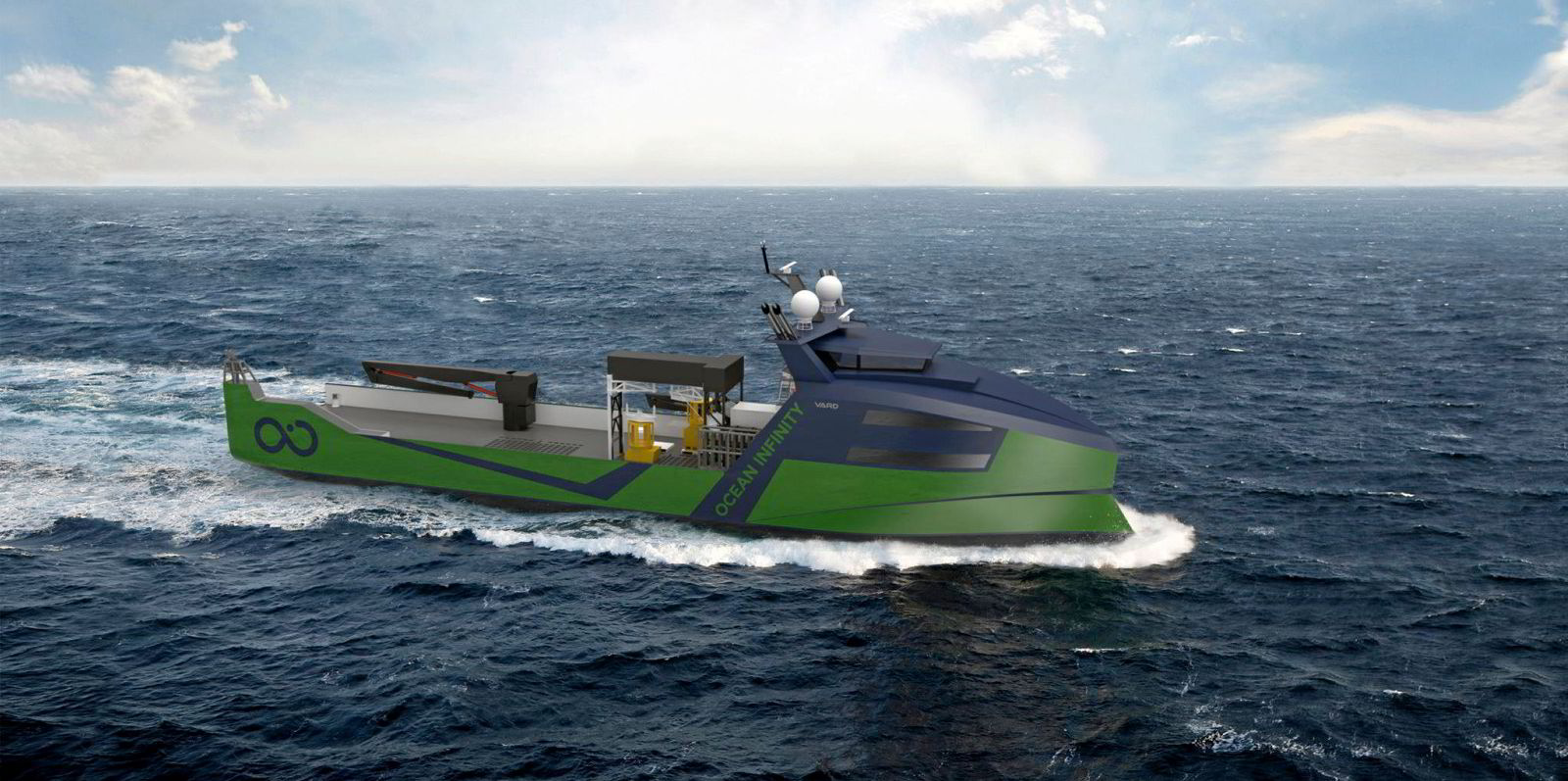Norwegian owner Yara International has finally taken delivery of the world's first autonomous cargo vessel after an interruption to the project caused by the Covid-19 pandemic.
Norwegian shipyard Vard Brattvag has just handed over the 3,200-dwt, 120-teu coastal vessel Yara Birkeland.
The ship will now undergo testing for container loading and stability, before it sails to a port and test area in Horten for further preparations for unmanned operation.
"[The] Yara Birkeland is an example of Yara's ambition to innovate and find climate-friendly solutions which can be commercialised," Yara said.
Challenges encountered
"However, innovation projects come with uncertainties and challenges."
In particular, the autonomous logistics on land have proven to be difficult, Yara said. "Simplified solutions" are being sought, the shipowner added.
Construction of the vessel went to plan with only slight delays, including the fitting of the battery, control and navigation systems.
But the project had been put on hold in the spring following the launching of the hull at a Vard yard in Romania in February. The ship had been due in Norway in April.
"Yara's goal is to complete the project and bring the emission-free ship into commercial operation," the company added. "Different ownership models or partnerships will be evaluated for operation and commercialisation."
Plan dates from 2017
Yara and technology company Kongsberg teamed up in 2017 to develop the ship. It was also planned to have zero emissions using battery power.
The idea was to replace 40,000 truck journeys per year.
The 80-metre vessel will have a speed of 6 or 7 knots.
Vard bagged the NOK 250m (then $29.6m) deal to build the unmanned ship in 2018.
The plan has been for the unit to go fully autonomous in 2022 on a Norwegian coastal trade route.
The project has received NOK 133.6m in support from Norwegian government enterprise ENOVA.





